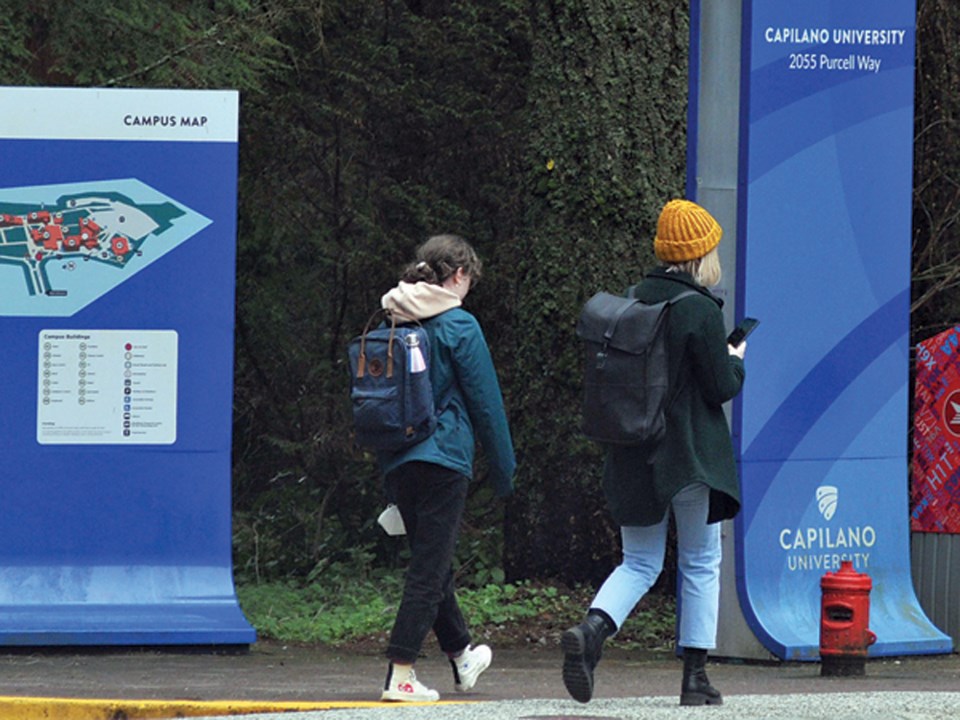Capilano University is preparing for a mostly full return to campus next week, although staff and students are expressing deep reservations about the decision.
After first delaying the start of the spring semester and then transitioning to about 70 per cent online learning, school administrators announced last week that on-campus instruction would resume on Jan. 31.
CapU vice-president Laureen Styles said the decision is in keeping with the guidance offered by the provincial health officer and Ministry of Advanced Education and the school has updated its COVID-19 safety plans.
“We are confident that we do have those steps in place and we continue to have, I think, excellent safety and communicable disease processes in place at the university. We're meeting or exceeding what are acceptable standards from the PHO guidance,” she said.
In a letter to university presidents dated Jan. 21, B.C.'s provincial health officer, Dr. Bonnie Henry, reiterated that despite the increased transmissibility and faster incubation of the Omicron variant, controlled, seated environments like classrooms are relatively low risk, while mental health impacts from virtual schooling are well documented.
“Given as well the disproportionate adverse impacts of the pandemic on our young adults in the context of a highly vaccinated population, I urge you to prioritize on-campus instruction whenever possible,” she wrote. “Analyses of B.C.’s hospitalization data further demonstrate that the vast majority of the post-secondary community, including faculty and staff, are at a very low risk of hospitalization due to COVID-19.”
That may be cold comfort for faculty and students, though. A survey of the student body found a split between those who are ready to return and those who fear coming back to campus.
“We are not 100 per cent happy with going back,” said Capilano Students’ Union president Maia Lomelino. “We're very worried about the anxiety levels for our students, and also students who are immunocompromised.”
Lomelino said they are now concentrating their demands on making sure there are accommodations for students.
“It's not fair for them to have to choose between their health and their academic success,” she said.
Capilano Faculty Association president Eduardo Azmitia said a survey of their members found similar dissatisfaction and a general feeling that the university is prioritizing budgets over health and safety.
“A significant number of faculty members are exhausted and emotionally depleted from the requests to transition on short notice,” he said. “More than 46 per cent of those surveyed would not like to return to campus on Jan. 31 as they do not feel that the university administration has prepared well for the transition back to campus.”


